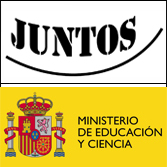
Start: 01/01/2011
End: 31/12/2013
Funding: National
Status: Completed
End: 31/12/2013
Funding: National
Status: Completed
Research unit:
Advanced Signal and Information Processing (ASIP)
Acronym: JUNTOS
Code: TEC2010-17816
Advanced Signal and Information Processing (ASIP)
Acronym: JUNTOS
Code: TEC2010-17816
While the number of users and the demand for high quality reception over wireless networks keep increasing, available spectrum remains the same, making it harder to support the same quality-of-service (QoS) within the current network architecture. Today’s wireless network architecture is based on the heuristics stemming from the wired networks of a previous age: it is divided into layers to provide modularity, and the physical layer is based on orthogonalization such that the available time and spectrum resources are allocated among users to minimize interference. However, information theory, which has been instrumental in designing high performance point-to-point (PtP) communication systems, indicates that both approaches are strictly suboptimal in the wireless context, where the channel fading and the broadcast nature of transmission create additional challenges that do not exist in the wired networks.In applications such as wireless multimedia transmission or distributed sensor networks, the fundamental performance measure is the end-to-end signal quality. From an information theoretic perspective, optimal end-to-end performance can be achieved by separate source and channel coding in PtP static channels; however, this optimality breaks down i) when the channel is fading and the application has delay limitations; ii) in multi-user networks; and iii) when the complexity of the system is limited, that is, in almost all practical systems. In JUNTOS, we consider end-to-end signal quality in wireless multi-user networks, and propose innovative joint source-channel networking schemes based on cooperation among nodes. “Cooperation” in this project has a wider meaning than the classical multi-hopping: we consider cooperation for source compression, to combat fading and to minimize interference. Our overall goal is to build a theoretical understanding of multi-user wireless network design and to develop new approaches for improved end-to-end QoS.
Carles Antón-Haro
PI/Project Leader
Jesús Gómez-Vilardebó
Researcher
Joan Bas
Researcher
Centre Tecnològic de Telecomunicacions de Catalunya
Coordinator
Coordinator
No results found
